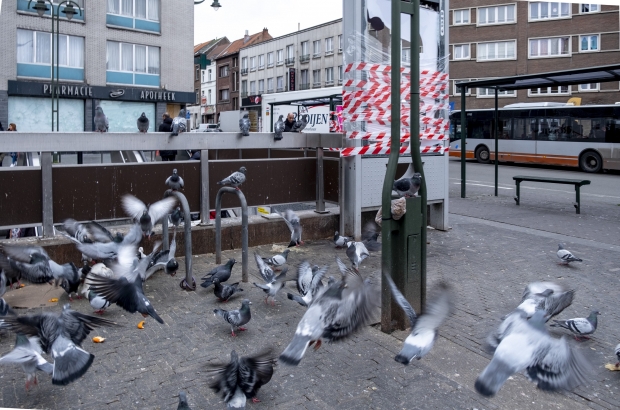- Daily & Weekly newsletters
- Buy & download The Bulletin
- Comment on our articles
Pigeon contraceptives helping curb Brussels bird population
A pilot project to curb Brussels’ pigeon population by distributing contraception in the form of bird food has proven successful enough to be extended.
The programme was first launched three years ago, Bruzz reports, in certain parts of the city.
The contraceptives were distributed in these designated areas and the result was a 20% drop in the pigeon population.
Pigeons have become something of a menace for many in the city, not least of all public transport operator Stib.
Stib staff used to trap and kill pigeons in an effort to control their numbers until an initiative banning the practice was passed at the start of this year.
The contraceptives only last for four to six days, meaning they do not make the pigeons permanently infertile.
A collective of vets called "Vets For City Pigeons" has been assisting the city with the distribution of the special contraceptive bird seed, which consists of grain coated with Nicarbazin, a medication against parasites in birds that also acts as a contraceptive.
The seed is distributed via machines at the cost of €7,381 a year per machine, which also includes the cost of maintenance and monitoring.
In one pilot programme in Laeken in late 2020, the pigeon population dropped from 250 to 126.
“The intention is to install nine more machines to have 15 in total,” said a spokesperson for Zoubida Jellab, alderwoman for green spaces, public cleanliness and animal welfare in Brussels.
These figures in the City of Brussels have also inspired the municipality of Ixelles to do the same.
“We scatter contraceptive seeds at Place Raymond Blyckaerts, on the roof of the library, at the end of the Ixelles ponds and near the cemetery,” alderman Yves Rouyet (Ecolo) told Bruzz.
“We will probably also intervene at the esplanade in front of the European Parliament, Rue Malibran and Avenue du Derby.”



















